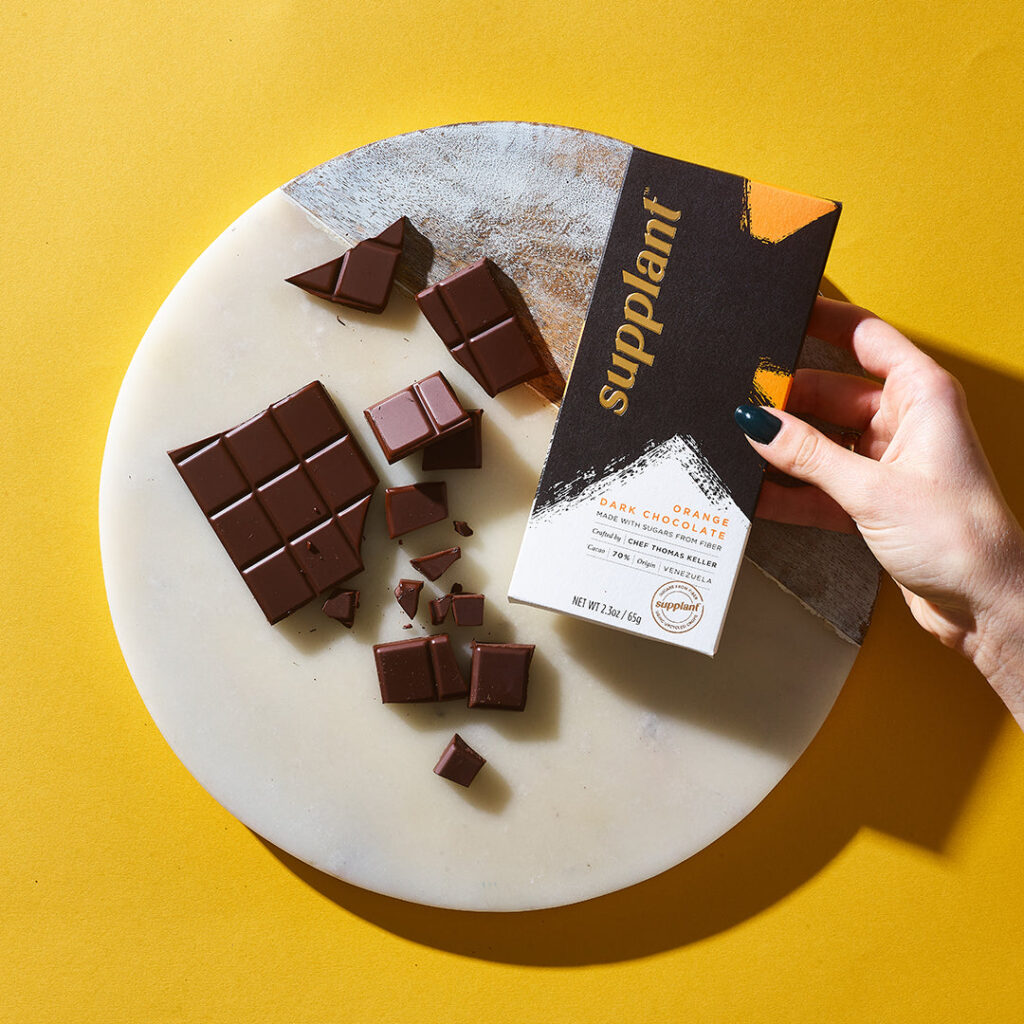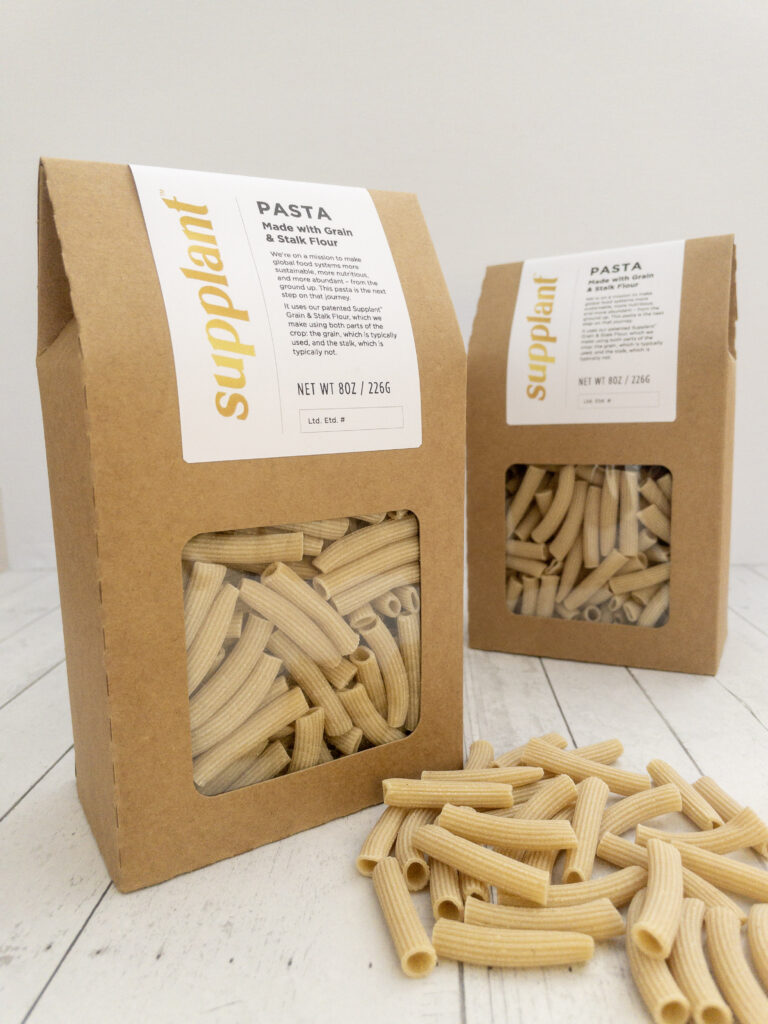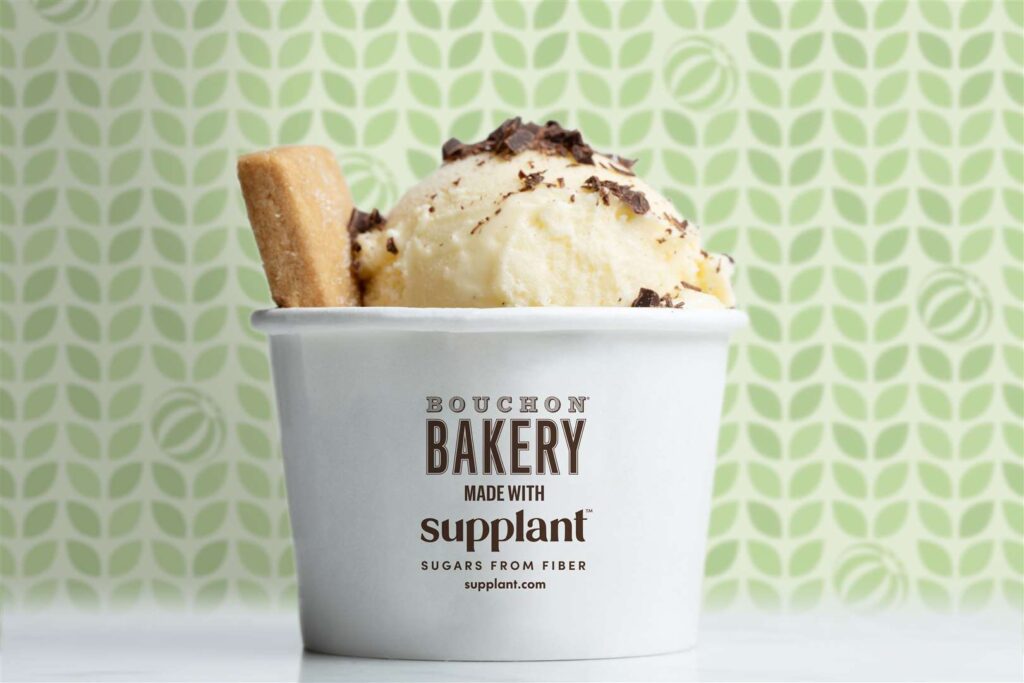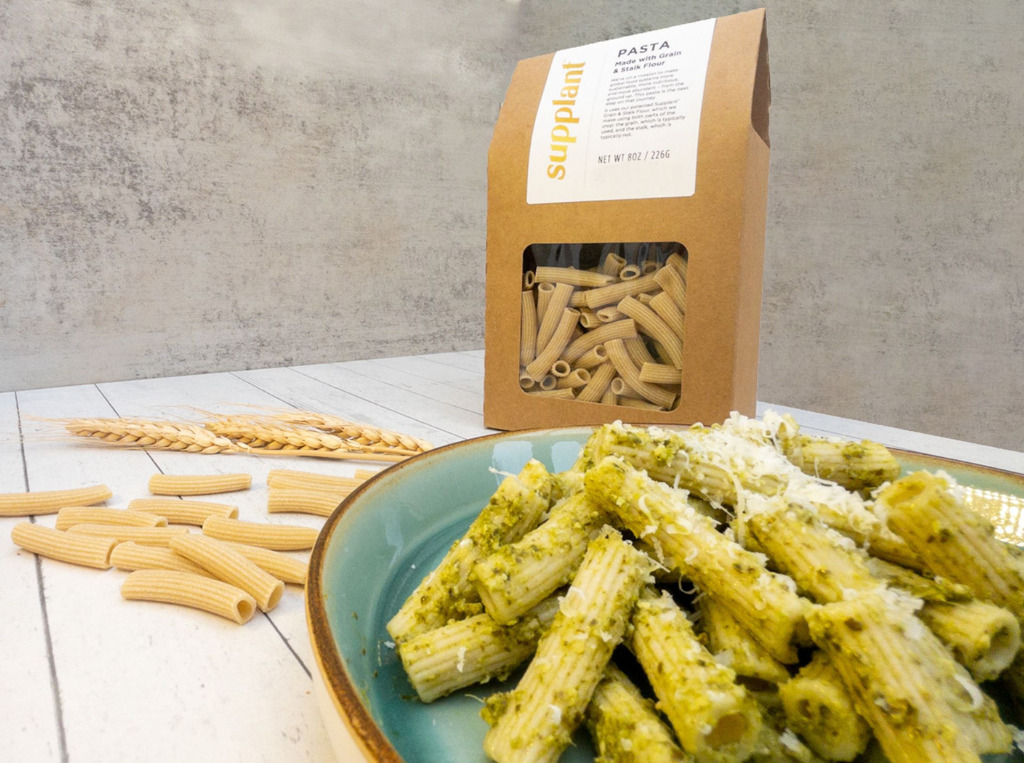Meet The Brand That Upcycles Food Waste Into Better-For-You Cookies, Chocolate & Pasta
6 Mins Read
It isn’t your everyday sugar alternative – it’s real sugar, just made from fibres. It’s not just wholewheat pasta, it’s one made from the whole wheat plant. It’s food made from food waste, and it’s better for you and the planet. That’s what The Supplant Company is all about – what more could you want?
Tom Simmons spent four years as a postdoctoral research scientist and biochemistry fellow exploring plant sugars and fibres at the University of Cambridge before he realised the true potential of alternative sugar. The $18B industry has seen many a brand attempt to convince consumers that their sweetener is it. But the one that Simmons came up with might actually be.
His startup, The Supplant Company, quickly went from a lab idea to Michelin-starred collaborations thanks to the environmental and nutritional virtue of its first product, an alternative sugar (but not quite alternative). Not only was it better for you than the sweet stuff humans have been itching to replace for decades, it was also made from ingredients that would have otherwise been discarded. The two-fold appeal – much like the product it sought to replace – was irresistible.
Supplant’s plant fibre sugar

Supplant’s Sugars from Fibre is made using agricultural sidestreams like the straw, stalks and cobs of corn, wheat and rice, as well as the hulls leftover from oat milk production. Essentially, it uses the fibre-rich structural parts of crops that don’t otherwise enter the food system and are often discarded. “We work with the current existing supply chain, the cheapest stuff out there,” Simmons told Bloomberg.
What makes Supplant’s ingredient stand out is the fact that instead of using additives that elevate the sweetness of sugars, it uses real sugars found naturally in plant fibre. The startup describes it as the “most abundant source of sugars in the natural world”, and insists that the alternative isn’t an alternative.
In a chat with TechCrunch, he explained the difference between Supplant and other sugar substitute startups: “The core difference is [other companies are] working with cane sugar. Our pitch is we make sugars from fibre, so you don’t need to use cane sugar.”
He added: “It’s about texture, bulking, caramelisation and crystallisation… We have a technology that’s going to give you the same sweetness gram for gram.” Its fibre-derived nature also means it’s lower in calories, has a lower glycemic index, and is prebiotic.
Supplant’s Sugars from Fibre caramelises, bakes and cooks like traditional sugar, and helps baked goods and desserts hold structure and texture the same way. And to demonstrate that, it roped in seven-Michelin-starred American chef Thomas Keller, who teamed up with the London-based brand to develop an ice cream using the alt-sugar – debuting it at Keller’s famed eateries The French Laundry and Per Se in 2021.
Keller has also created a range of packaged shortbread cookies – available at Keller’s Bouchon Bakery in California – and chocolate bars that are available for purchase from Supplant’s website. “Nutrition is always at the forefront of what we do; being able to add nutritional impact to our foods, and therefore to our bodies,” Keller said when launching his Supplant-sweetened gelato. “Supplant Sugars from Fibre is yet another prime example that prioritises this, as well as emphasises sustainability, innovation and health.”
A truly whole-wheat pasta

First came sugar, then a new kind of flour. It’s a similar concept – upcycling ready-to-be-wasted ingredients – but tackles the market’s savoury tastebuds too. The Grain & Stalk Flour is exactly what it sounds like – flour made from the typically used grain and the typically discarded stalk of the wheat plant.
This underutilised part of the plant is usually left to decompose or is set ablaze – a greenhouse-gas-intensive process called stubble burning. However, using the stalk means more food per acreage (hence less land use), and less use of pesticides and other pollutants (hence fewer emissions).
And apart from its food-waste- and climate-related benefits, the wheat stalk also boasts health advantages. Made mainly of fibre, the Grain & Stalk Flour has – like its predecessor – lower calories and six times more digestive fibre than conventional varieties.
But unlike Supplant’s sugar, this whole-wheat-plant flour doesn’t behave like classic starch, which offers sticky and stretchy properties, and acts as a binder – all key components in foods like bread. “Cooking is all about equations,” Keller told Fast Company, noting that it will need more trial and error to get the right balance of ingredients. “And when you get to things like this bread, the equation becomes much more important. You can’t make too many mistakes.”
Despite that, the flour works well in many other applications – demonstrated again by Keller in a tasting menu at Per Se. This included crackers, ramen and different kinds of pasta (including spaghetti and ravioli), and the acclaimed chef hopes to switch from refined to Grain & Stalk Flour for pastas across all his restaurants.
Coinciding with this was the release of a pasta made by Supplant’s flour earlier this year, which has subsequently sold out. “By bringing underutilised plant material back into the food system, Supplant Grain & Stalk Flour furthers our mission to create a food system that is fit for the future – one that is more sustainable, more food-secure and more nutritious for all,” said Simmons after the launch.
Towards a sustainable food system

The food system is a massive strain on the environment – a 2021 Nature Food study found it responsible for a third of all greenhouse gas emissions. Meanwhile, a third of food produced across the globe goes to waste, amounting to $1T in losses. These are huge problems for an increasingly populated, increasingly poorer world.
Companies like Supplant – using sidestream valorisation to produce better alternatives to food staples – offer a viable solution to this mess. Californian food tech brand Oobli, which uses microbial-fermented sweet protein to make chocolate, is another leader in the sugar substitute space. And when it comes to flour, Renewal Mill uses residue from plant-based milk production, and turns it into flours, baking mixes and cookies.
Many brands are also upcycling ingredients to make alt-meat. South Korea’s Unlimeat produces beef, pork and tuna alternatives, while Swiss startup Luya Foods upcycles okara (the residue from tofu production) to develop vegan chunks and burger patties. Hawaiian brand Cajú Love uses cashew fruit from the cashew nut and juice industry to make its plant-based meat alternative.
The Supplant Company says it is “addressing the interconnected problems of nutrition, sustainability and food security while creating ingredients that behave functionally like their traditional counterparts”. And I’m inclined to agree.



